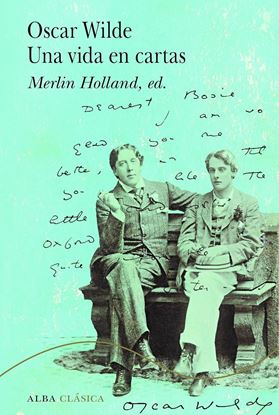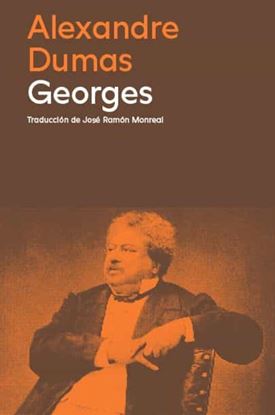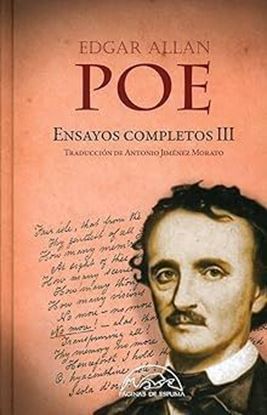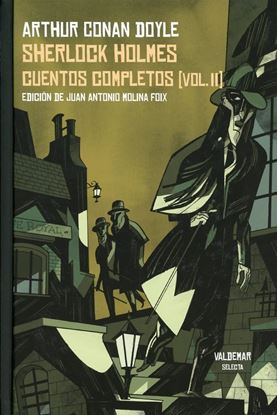

OSCAR WILDE. UNA VIDA EN CARTAS (TD)
Este volumen ofrece una selección explicada y cronológicamente ordenada de las cartas de Oscar Wilde realizada por Merlin Holland, nieto suyo y especialista en su obra, de manera que componen la autobiografía que él nunca escribió. Todo Wilde está aquí. Oscar Wilde. Una vida en cartas es la crónica espléndida de una mudanza terrible, y un auténtico espejo de la vida y la literatura de uno de los genios del siglo XIX.
1,995
1,496
GEORGES
Georges es hijo de un mulato adinerado, natural de la Île de France (hoy Mauricio), con una tez tan clara que podría pasar por blanco. Tras crecer viendo cómo el valor de su padre se ve comprometido por un sentimiento de inferioridad, llegará a la madurez con la tenaz ambición de jurar venganza a los hombres blancos que lo despreciaron a él, a su padre y a tantos otros durante siglos. Descatalogada desde hace tiempo en España y traducida brillantemente por José Ramón Monreal, esta novela de trasfondo indudablemente autobiográfico, publicada originalmente en 1843, puede apreciarse ahora como nunca antes y sumarse a las grandes obras de un autor inmortal.
1,995
1,496
TEATRO (RAE)
Edición de Alberto del Río Nogueras.El volumen 19 de la BCRAE reúne la totalidad del teatro enciniano, formado por las ocho églogas incluidas en el Cancionero de 1496 y las seis piezas compuestas a partir de esa fecha.
La obra de Encina compendia y eleva a la excelencia la tradición dramática medieval, en la que injerta las perspectivas amorosas propias de la lírica cancioneril y de las ficciones sentimentales, acordes con el gusto palaciego del tiempo y refinadas con ciertos aires mitológicos durante su etapa italiana.
Nadie le discute el trono de los inicios de nuestra escena, aunque la posteridad lo olvidase y tuviese que esperar a la época de las vanguardias, al calor de su reivindicación como músico, para cautivar con las mismas armas literarias de sus comienzos: un estudiado primitivismo que logra, bajo disfraz pastoril, calar hondo en las conciencias.
Para establecer el texto crítico de la presente edición se ha consultado la totalidad de testimonios antiguos, algunos de ellos conservados en ejemplar único.
1,995
1,496
ALINE Y VALCOUR, O LA NOVELA FILOSOFICA
Respondiendo al espíritu enciclopédico y totalizante que caracteriza toda la escritura del marqués de Sade, en sintonía con el siglo al que pertenece, Aline y Valcour no solo pretende ser la novela filosófica, sino que se construye como una auténtica macronovela o compendio narrativo que abarca los principales géneros narrativos y registros de escritura del siglo XVIII: todo ello utilizando como soporte el género epistolar.
1,995
1,496
ENSAYOS COMPLETOS III
Más de siglo y medio después de la muerte de Edgar Allan Poe (18091849), celebramos la publicación de los Ensayos completos de uno de los mayores cuentistas y, en general, uno de los más importantes escritores de la historia. Lejos de ser la persona atormentada y melancólica que en ocasiones se nos ha presentado, esta edición muestra a un Poe comprometido con la literatura y la estética, así como con la crítica literaria de la obra de sus contemporáneos.
En este tercer volumen –traducido por Antonio Jiménez Morato– continúa trazando una valiosa cartografía de la literatura norteamericana a través de libros y autores destacados en su época que recorre en lúcidos artículos y reseñas.
1,995
1,496
SHERLOCK HOLMES. CUENTOS COMPLETOS (V.II
En 1891, Arthur Conan Doyle, acuciado por necesidades económicas y animado por el interés que habían despertado las dos primeras novelas de Sherlock Holmes, ofreció a la revista Strand Magazine una serie de narraciones breves del genial detective a la que siguieron otras. «El formato del relato resultó ser el más apropiado a la publicación por entregas», explica Juan Antonio Molina Foix, traductor y editor de estos cuentos completos. «En cada uno se contaba una aventura completa de la pareja protagonista pero se establecían alusiones y relaciones entre todos ellos... La brevedad de los textos obligó a Conan Doyle a desarrollar una eficaz economía de medios, basada en su innegable habilidad para reflejar una atmósfera y unos personajes con unos pocos brochazos... Londres sigue siendo el decorado idóneo para estas aventuras, que transcurren casi siempre entre intrincados, sombríos y desiertos callejones, malolientes tabernuchas, fumaderos de opio y hoteles de lujo.» El presente volumen reúne las 19 últimas historias del sabueso de Baker Street, agrupadas en sus dos colecciones originales, a las que se ha añadido una introducción y un álbum de ilustraciones, además de multitud de notas explicativas, que convierten esta edición en la más completa y documentada de los relatos de Sherlock Holmes en lengua española.
1,995
1,496














